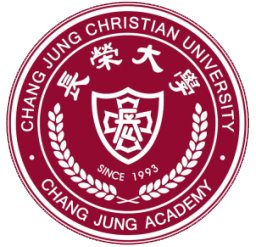The Presbyterian Church of Taiwan is a part of the reformed Presbyterian churches. Its history can be traced back to the three Western medical missionaries in Taiwan, specifically Dr. James Maxwell from the from the Presbyterian Church of England in Southern Taiwan in 1865, Dr. George Leslie MacKay Presbyterian Church in Canada in Northern Taiwan in 1872, and Campbell Moody and David Landsborough from the Presbyterian Church of England in Changhua in 1896.
Dr. James L. Maxwell, M.A., M.D. (1836-1921), a missionary from the Presbyterian Church of England, was sent to Taiwan in 1865, and he selected Tainan to be the center of the English Presbyterian mission in Taiwan. He opened a clinic and church in Tainan (Kanxi St. Tingzaijiao) for medical missionary works. While working as a medical missionary, he gradually gave the people of Taiwan hope for new life, progress and prosperity. He also introduced the beliefs of Western civilization, initiated Taiwan’s science-based medicine, while introducing the general knowledge of world history, astronomy, geography, and mathematics. At the time, missionaries sent by the Presbyterian Church of England to Taiwan were all outstanding physicians, educators and scientists. They had founded Sin-Lau Hospital at their time in Tainan, and immediately began their medical missionary work. They then helped locals absorb Chinese and Western culture, scientific knowledge, teachings of the Bible, and spread the Gospel. They began establishing elementary schools at churches in various locations at around 1870, and decided to establish a Christian high school on March 15th, 1883.
The Presbyterian Church of England had formally selected Tainan to establish the first Western-style high school in Taiwan – Presbyterian Church High School, the predecessor of Chang Jung High School, on September 21st, 1885 (the 11th year of emperor Guangxu of the Qing Dynasty). The first principal was Mr. George Ede, and 126 years have passed since then.
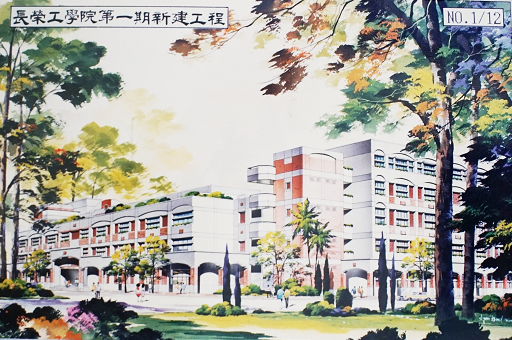
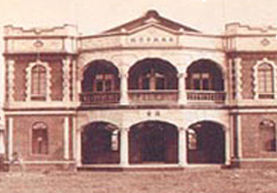
Dr. James L. Maxwell, M.A., M.D. (1836-1921), a missionary from the Presbyterian Church of England, was sent to Taiwan in 1865, and he selected Tainan to be the center of the English Presbyterian mission in Taiwan. He opened a clinic and church in Tainan (Kanxi St. Tingzaijiao) for medical missionary works. While working as a medical missionary, he gradually gave the people of Taiwan hope for new life, progress and prosperity. He also introduced the beliefs of Western civilization, initiated Taiwan’s science-based medicine, while introducing the general knowledge of world history, astronomy, geography, and mathematics. At the time, missionaries sent by the Presbyterian Church of England to Taiwan were all outstanding physicians, educators and scientists. They had founded Sin-Lau Hospital at their time in Tainan, and immediately began their medical missionary work. They then helped locals absorb Chinese and Western culture, scientific knowledge, teachings of the Bible, and spread the Gospel. They began establishing elementary schools at churches in various locations at around 1870, and decided to establish a Christian high school on March 15th, 1883.
The Presbyterian Church of England had formally selected Tainan to establish the first Western-style high school in Taiwan – Presbyterian Church High School, the predecessor of Chang Jung High School, on September 21st, 1885 (the 11th year of emperor Guangxu of the Qing Dynasty). The first principal was Mr. George Ede, and 126 years have passed since then.
In 1954, Mr. Chen Ming-Ching, the second chairman of Chang Jung High School, visited Japan to observe development trends of its universities and studied the features of Christian universities. Afterwards, the Presbyterian Church in Taiwan resolved for 15 directors, including Chen Ming-Ching and Wu Chi-Fu, to form the first board of directors of Chang Jung College of Liberal Arts. However, The College was not established at the time, due to the Ministry of Education’s ban on establishing universities. The ban was still not lifted during the term of Mr. Hou Chuan-Cheng, the third chairman of Chang Jung High School (1963-1965), and he hoped to start from establishing a junior college, but the others didn’t support this proposal. Concrete plans were then proposed during the time of Mr. Wu Chi-Fu, the fourth chairman of Chang Jung High School (1965-1989), but they remained in draft due to legal restrictions.
In 1984, the ministry of education lifted the ban, as Mr. Huang Jen-Chun became the fifth chairman of Chang Jung High School. Together with Dr. Su Chin-An, principal of Chang Jung High School, and Ms. Liu Kui-Chih, chairman of Chang Jung Girls’ High School, they proposed to establish Chang Jung College of Engineering, in hope to extend the Church’s efforts and contribution to Taiwanese cultures, educations, and medical care
The application was officially submitted to the Ministry of Education in March 1988. The Ministry of Education approved the establishment of Chang Jung College of Engineering in June 1989. The board of directors was established in August and was approved for future references (Tai No.7842620). Mr. Kao Yu-Jen, chairman of the Chang Jung High School Alumni Association, was appointed the chairman of Chang Jung College of Engineering. The Foundation registration was completed on February 3rd, 1990 (Nan-Yuan-Min-Fa-Deng No.3781).
Chang Jung College of Engineering was changed to Chang Jung College of Management, this change was approved on November 16th, 1992 (Tai (81) Gao No. 62959). The registration of Chang Jung College of Management was approved on February 16th, 1993 (Nan-Yuan-Min-Fa-Deng No.9171). Professor Lin Pang-Chung was hired as the first president, and the colleges took part in the joint college entrance examination in 1993 with four available departments, namely information management, business administration, international business, and accounting; the college was approved to enroll 200 new students, setting a milestone for a Christian school in the developing history of Taiwan’s higher education.
In 1997, Professor Chien Chu-Nan, the second president, was committed to develop humanistic education and professional education for holistic education, particularly in the promotion of service and art education.
In 2000, Professor Hxiao Long-Sheng, the third president, suggested changing the Chang Jung College of Management to Chang Jung Christian University. He implemented holistic education, improved the teaching quality, strengthened the research atmosphere, expanded the outreach services, attentively develop the departments and actively reached out to further financial resources.
In 2001, the board of directors faced a financial crisis. It was promptly assisted by Dean Huang Zhao-Sheng of Changhua Christian Hospital. He purchased more than 20 hectares of land in the reserved area for NT$1 billion. In the following year, he had promised to provide financial support to the school, and help the development and promotion of changing the Changhua Christian Medical School to Chang Jung College of Management. This proposal was finally approved in the academic year of 2002 according to Tai (91) Gao (3) Zi Letter No. 91137638 of the Ministry of Education on October 1st, 2002.
In 2003, Dr. Chen, Chin-Seng, the fourth president, led the teachers and students of CJCU to a new era. At his time, the David Landsborough Memorial Library, Administration Building and the Student Activity Center were first established. On the other hand, he valued campus aesthetic and encouraged art works that were created by teachers and students. He also set out to make the university to be "the best private university in South Taiwan". He not only took this as a benchmark, but also as a promotion of growth in teaching and school affairs.
On September 6, 2007, there was a project named “Shalun, the Tainan branch line, of Taiwan railway”. At the end of the following year, the chairman, Yang Si-Hai, of CJCU attended the meeting about the Shalun railway, and issued the 40-meter avenue that belonged to CJCU for the purpose of connecting transportation road. As a gesture of gratitude, The Taiwan railway Administration named the station after the school, CJCU station. On January 2nd, 2011, the "CJCU Station" was officially launched. On December 23, 2011, CJCU participated in a meta-evaluation of university institutional evaluation of the Ministry of Education, and the process was completed in 2011, CJCU passed the evaluation

Taiwan Railway Shalun Branch Line CJCU Station officially opened to traffic, on January 2, 2011.
In 2013, Professor Lee Yung-Lung became the seventh president of CJCU. He has dedicated himself to providing students with professional learning fields, rich library resources, as well as an excellent housing environment. To fulfill the spirit of holistic education, he not only encourages campus club activities and expands international exchanges but also provides students with diverse and high-quality educational opportunities through professional industry-academia integration. Moreover, in 2019, Chang Jung Christian University participated in the QS Stars Rating for the first time and won four stars. In 2022, it ranked 351- 400 in the QS Asia University Rankings and 1,001-1,200 in the QS World University Rankings. President Lee also encourages teachers to become more sophisticated in their teaching and research and enhance students' international mobility. To create a campus for domestic and international students to interact and socialize. He has led CJCU towards the goal of becoming the best private university in southern Taiwan and a world-class Christian university.
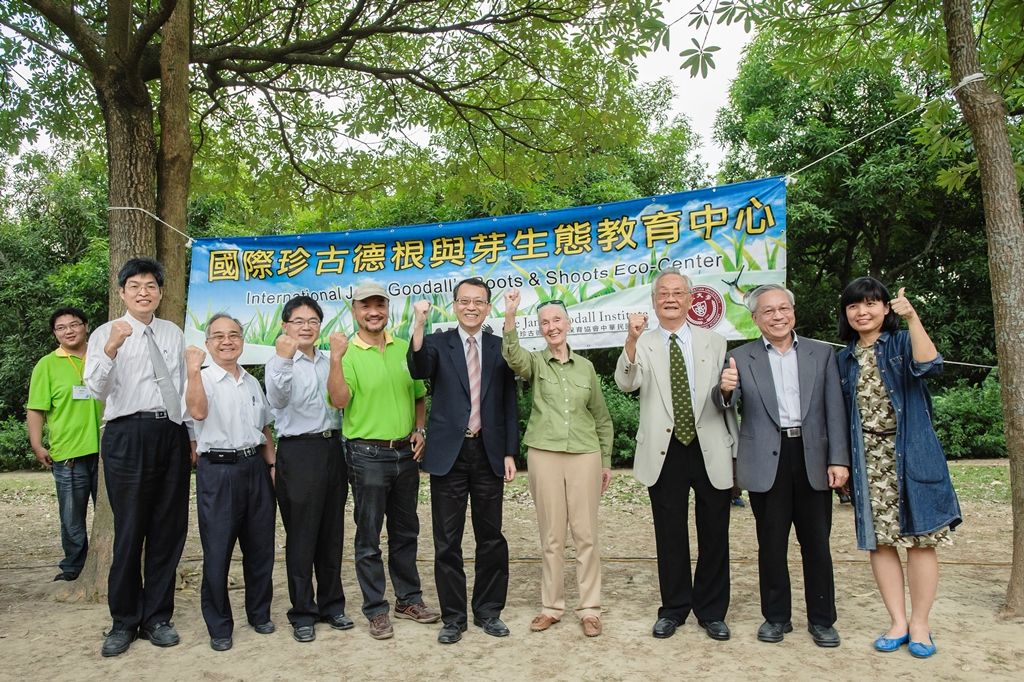
Dr. Jane Goodall planted the Tree of Hope in CJCU, on November 6, 2014.
Chang Jung Christian University bears the heritage of the Christian spirit and upholds the core values of “respecting God”, “loving neighbors”, “cherishing the nature” and “practice”. It is committed to achieving university social responsibility and practices through the mission of devotion to God, awakening wisdom, expanding global vision, and social and environmental education. In 2014, CJCU established the International Jane Goodall’s Roots & Shoots Eco-center, making it an ecological education base for local communities. In 2016, it was recognized by the Environmental Protection Administration at the Fourth National Environmental Education Award, making CJCU a veritable Green Waterfront University.
Chang Jung Christian University actively develops a Green Campus Culture. In its procurements, it seeks to reduce environmental burden and has won Excellence Award in the Tainan City Green Procurement Award for four consecutive years (2018-2021). In 2016 and 2018, CJCU won the Gold Award in the Taiwan Corporate Sustainability Award for non-profit organizations and was the only comprehensive university that won the Gold Award in this category. In terms of social responsibility, CJCU has also expanded the social participation of its teachers and students and promotes the integration and cooperation of all staff and students. In the 14th TCSA Award in 2021, CJCU’s SDGs practices won the Platinum Award in the University Sustainability Report category. It also won awards in the Green Leadership Category of the 2021 Asia Responsible Enterprise Awards, thus evidencing the international recognition of Chang Jung Christian University for its long-standing commitment to sustainability.

CJCU won the Platinum Award in the University Sustainability Report Category of the 14th TCSA Award, on November 14, 2021.
In 2021, 956 universities around the world participated in the GreenMetric World University Ranking. CJCU ranked 96th, placing it among the top 100 green universities in the world. Based on the philosophy of "net zero, sustainability, innovation", CJCU puts into practice the innovative goals of "education, field, research and development" to instill in every teacher and student on campus and in every corner of the world the value of sustainability and to become a world-class green and sustainable university.
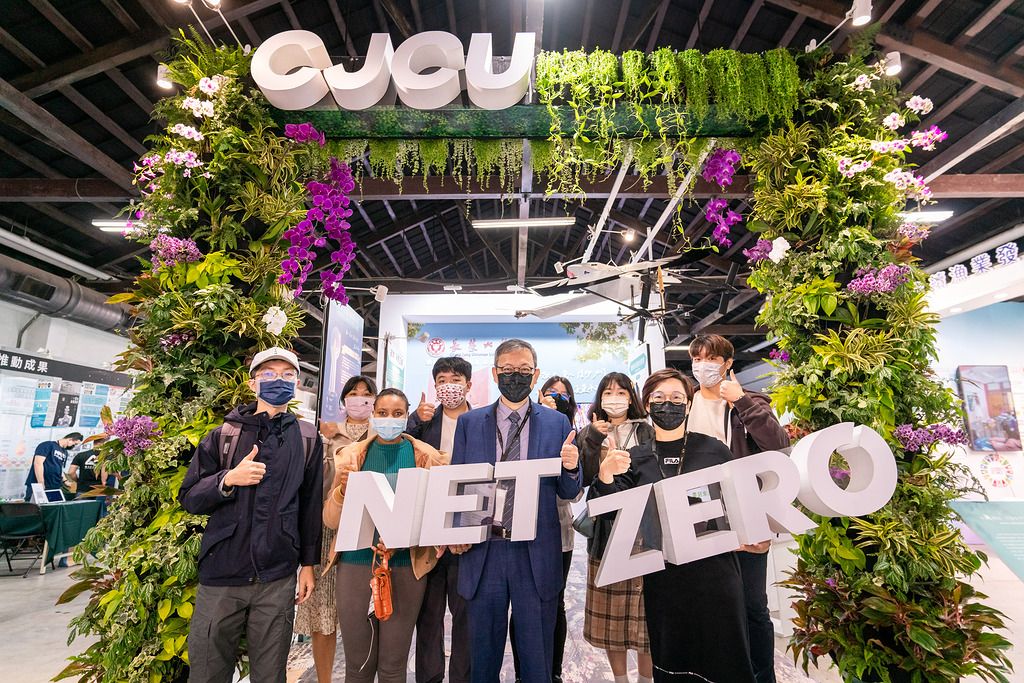
CJCU participating in the Taiwan Climate Action Exposition (TWCAE) on December 3, 2021.
Through implementing placemaking activities, Chang Jung Christian University actively promotes the exchange of international experience, connects with other schools in the world participating in the Roots & Shoots Program, and increases the environmental concern and international mobility of students and residents in watershed regions.
In 2017, CJCU established the Yunus Social Business Center. It is the first social enterprise center in southern Taiwan, the second in the country, and the 30th in the world to be established in the name of Nobel Peace Prize winner Dr. Muhammad Yunus. Through education and training, the center promotes the concept of social enterprise and spreads the seeds of social justice to every corner of the world, thereby putting CJCU’s social responsibility and sustainable development goals into practice and making CJCU an important driver for cultivating Taiwan’s social enterprise talents. To cultivate students with international mobility and vision, CJCU already has had a strong collaboration with Hong Kong, Macau, Indonesia, Malaysia, Vietnam, the Philippines, Thailand, and other countries for many years prior to the government promotion of the Southbound Policy. In addition to agreements with sister schools, CJCU has been collaborating with Australia’s Queensland University of Technology and Royal Melbourne Institute of Technology, the United States’ Middle Tennessee State University, Japan’s Hakodate University and Seigakuin University, and Switzerland’s Business & Hotel Management School to offer joint dual degree programs to meet the needs of students studying abroad.
Looking back on the hardships in the early days of establishing CJCU, Dr. Huang Jen-Chun, the founder and current chairman of CJCU, said that without God's permission and grace, there would be no Chang Jung Christian University today. From the very beginning, he and founder Su Chin-An had searched high and low for a school site and raised funds. They mobilized the teachers, parents, and alumni of Chang Jung Senior High School to organize activities and moved the social talents to assist, thus laying the foundation for the development of the CJCU. After various stages of preparation, establishment, and name change, the entire faculty, staff, and students worked hard to cooperate, actively run the school, establish programs, and create distinctive features under the leadership of the board of directors and the president. Currently, CJCU comprises the College of Management, College of Health Sciences, College of Humanities and Social Sciences, School of Information and Design, School of Theology, College of Continuing Education, International College of Practice and Education for the Environment, School of Safety and Health Sciences, School of Fine Arts, and School of Liberal Arts Education, totaling 60 departments and bachelor's degree programs, 19 master's programs and graduate institutes, and 1 doctoral program1. In the 28 years since the school was founded, the number of students has grown from 134 to nearly 10,000 students.
Constrained by the domestic low birthrate trend, operations in the education industry have become increasingly difficult. CJCU has formulated eight development strategies - "holistic pastoral education", "adaptive development of talents", "lean industrial development", "international participation", "campus sustainability", "social responsibility", "organization improvement", and "smart campus". It hopes to fulfill the development mission of CJCU at each stage, continue to invest in the necessary software and hardware equipment, create a diverse learning environment, and stimulate student learning motivation and potential. CJCU has also assumed the responsibility of improving social responsibility and stepped out of the academic ivory tower by shouldering social responsibility work such as working with the community to invest in local care, cultivating domestic and foreign talents, and protecting the environment.
All members of CJCU uphold the vision of "following Jesus in His spirit of helping the world and saving people, and becoming a world-class Christian university" and the core values of “respecting God”, “loving neighbors”, “cherishing the nature” and “practice”. As we strive towards our ideal of becoming "Locally Engaged; Globally Connected, A model university for sustainability," we firmly believe that with the nurture and care of the gospel of Christ, we will surely blossom and bear fruit.
